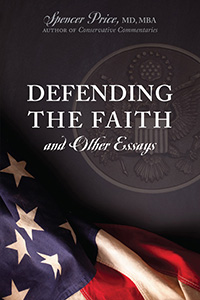The Illusion of Justice
Monday, April 3rd, 2017 @ 12:00PM
“Justice was served today,” or “It was a victory for justice,” or “Justice has been done,” are common statements offered by prosecuting attorneys upon the return of a guilty verdict in criminal cases. And, in certain situations, a guilty verdict and its resulting punishment might, in fact, be “just.”
Nevertheless, for certain crimes, especially violent crimes such as rape and murder, the question remains, at least in my mind, of whether justice is ever actually served or if it’s even possible to be served. Regrettably, I think not.
Most dictionaries list several definitions for the word justice – “the quality of being just; righteousness, equitableness, or moral rightness; the administering of deserved punishment.” I find these definitions particularly interesting when considered in the context of our American criminal justice system. In particular, I believe our system often fails in at least two key aspects of these definitions: “administering of deserved punishment” and “equitableness.”
It is true that when a criminal is sentenced after being convicted of a crime, our criminal court system (together with our penal system) is “administering…punishment.” But is the system administering the “deserved” punishment? In my opinion, the answer is “No” in a disturbing number of cases, especially when it comes to the most heinous crime of all – murder.
Consider pre-meditated murder or murder in the first degree (sometimes referred to as “cold-blooded” murder) in which the killer plans the murder in advance, lies in wait for the victim, then kills the victim, usually execution style, often while the victim is literally begging for his or her life. How can it possibly be considered justice for such a criminal to receive anything less than the death penalty meted out swiftly and summarily? You’ve got me.
Of course, in an effort to be “just,” the courts consider many factors when trying such a case – in particular, mitigating circumstances and criminal history of the defendant (read: murderer). Nevertheless, these factors notwithstanding, cold-blooded murderers should pay for their crimes with their lives for any semblance of justice to be achieved. But they usually don’t. Often, these criminals receive life sentences – some with the possibility of parole, some without – but few receive what most consider an appropriate sentence – death. Where, exactly, is the “equitableness” in such situations?
However, the failure of our criminal justice system to render true “justice” in these cases isn’t actually the fault of the system itself but, rather, the legislature which, in most instances, defines the crime and then establishes guidelines for punishment. Judges, district attorneys, and defense lawyers work within these guidelines while trying cases. And that makes sense – usually. But when the legislature fails in its responsibility to assign appropriate punishment for crimes, especially violent crimes, the criminal court system is rendered impotent and hope of real justice becomes merely an illusion.
Sadly, even if appropriate punishments were demanded by the legislature and imposed by the courts – such as lethal injection for convicted murderers – the reality is that there really is no such thing as justice because justice isn’t about punishment but, rather, about restoration. For justice truly to be served the destruction criminals wreak must be undone and circumstances returned to the pre-crime state – in the case of murder, life restored to the murder victim. Of course, such isn’t possible. Even the “eye for an eye” principle of justice falls short in that taking the eye of a criminal doesn’t restore sight to the victim’s lost eye.
Nevertheless, insomuch as we must accept the limitations of our justice system, we cannot shrink from the responsibility of demanding appropriately severe punishments when dealing with crime and criminals. Those in our society who demand more lenient sentences for criminals are most often those unaffected by their crimes. Opposing the death penalty is easy when one has never lost a family member to murder. These people, in efforts to relieve their own consciences, advocate positions of leniency which leave the rest of us vulnerable to the acts of violent criminals they seek to protect.
A slap on the wrist doesn’t frighten a hardened criminal nor even does the prospect of life in prison. But the threat of the death penalty often causes violence-prone criminals to think twice about committing certain crimes. Those that don’t believe such a statement have merely to ask a guard on death row about the behavior of death row inmates – “the best behaved inmates in prison,” he’ll say. Why? Because death row inmates don’t want to die. What they want is for their death sentences to be overturned or commuted to a life sentence and they believe that good behavior might somehow help their cause.
Eliminating all crime in America may not be possible but reducing it is. Demanding that legislatures establish appropriate punishments for crimes and that criminal courts hand down appropriate sentences is a vital and necessary step toward crime reduction. Though true justice may never be possible since no system can restore circumstances to the pre-crime state, we must, nevertheless, demand that criminals face appropriately severe punishments. Anything less is merely the illusion of justice.
Posted by Spencer Price
Categories: Latest Columns




